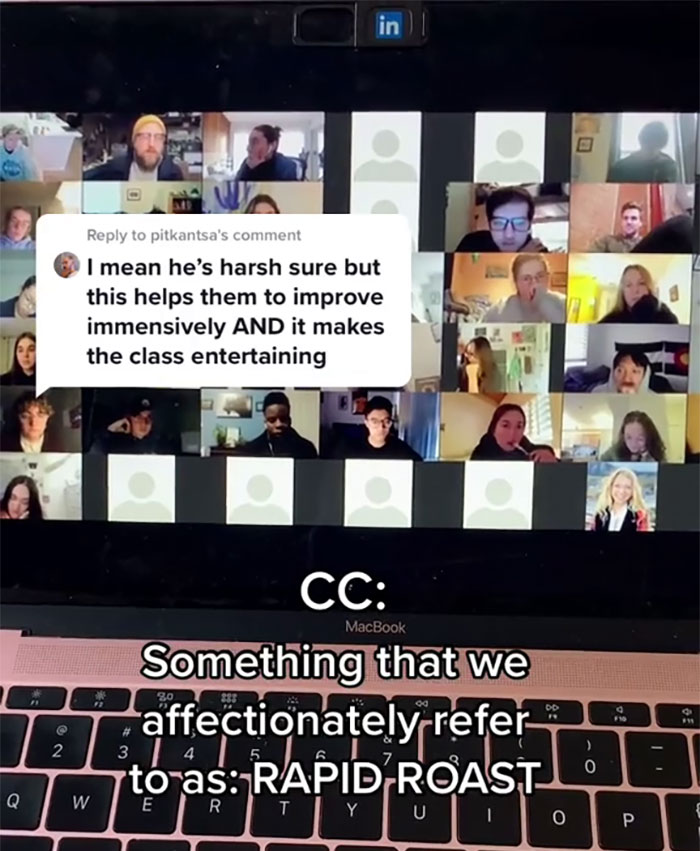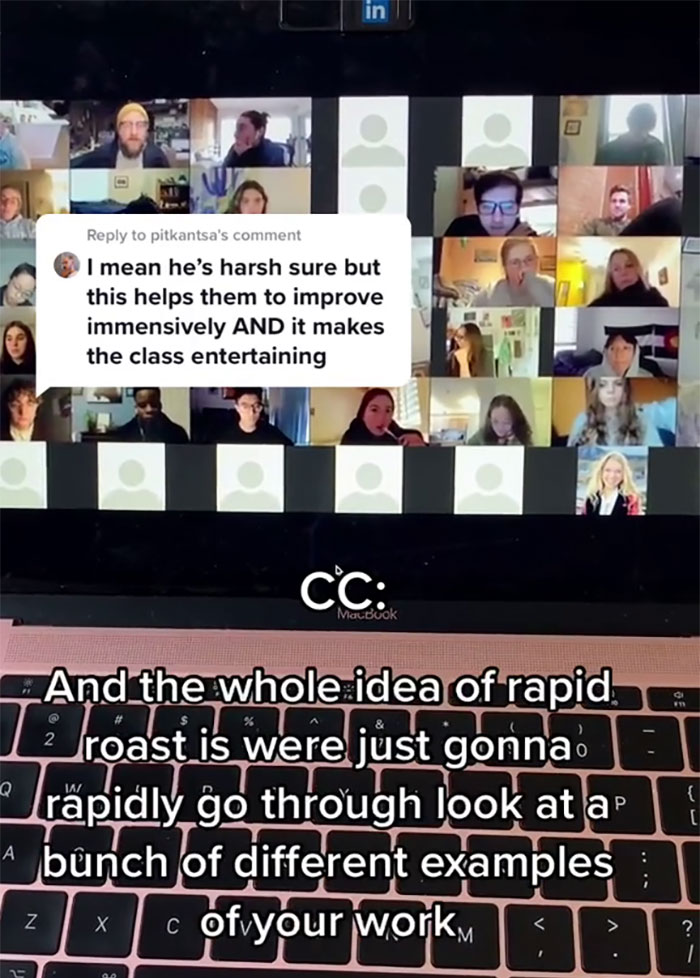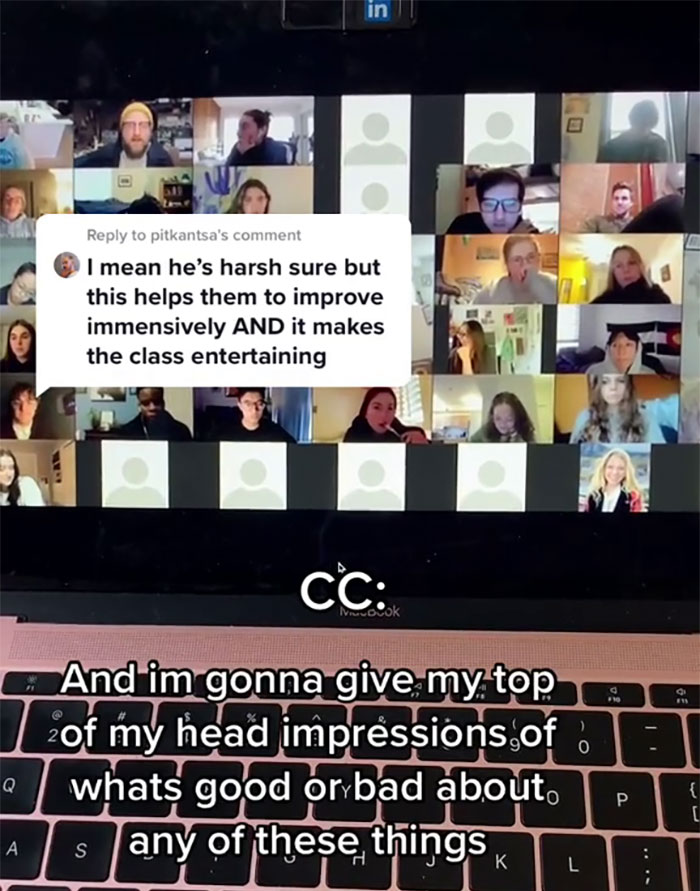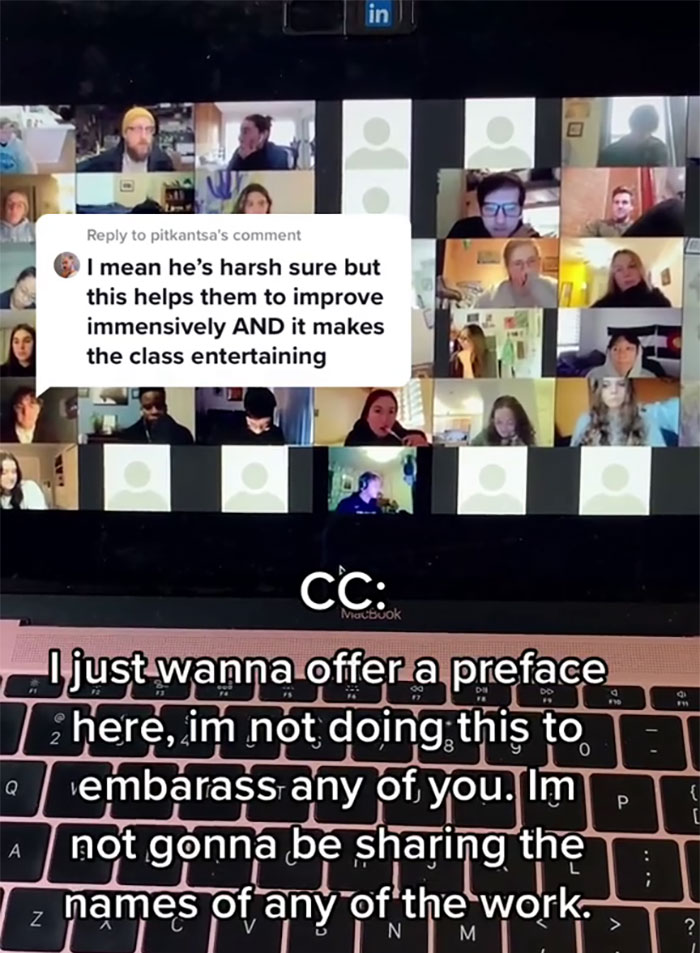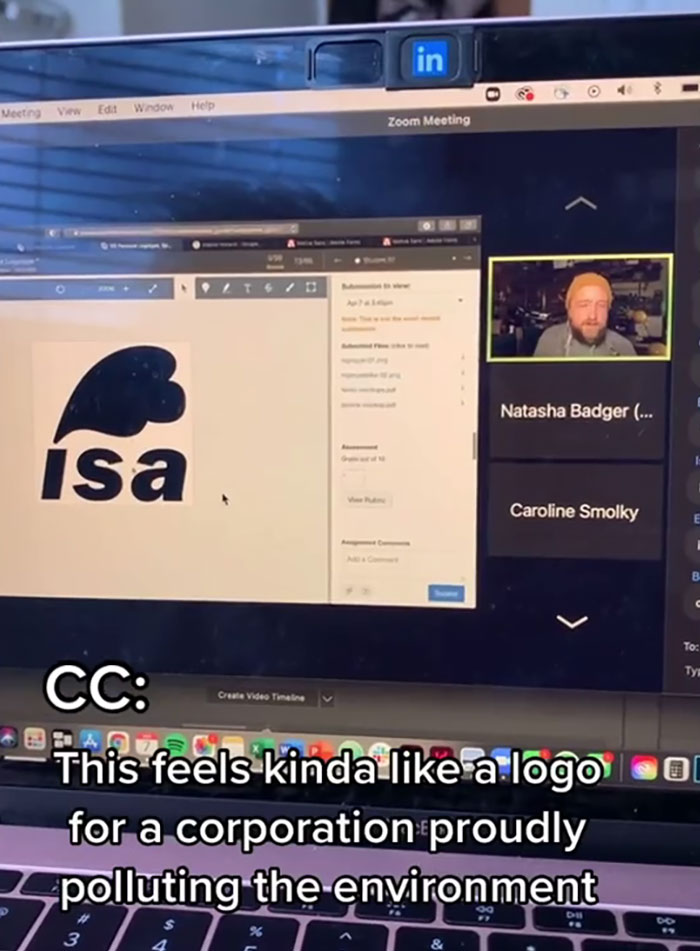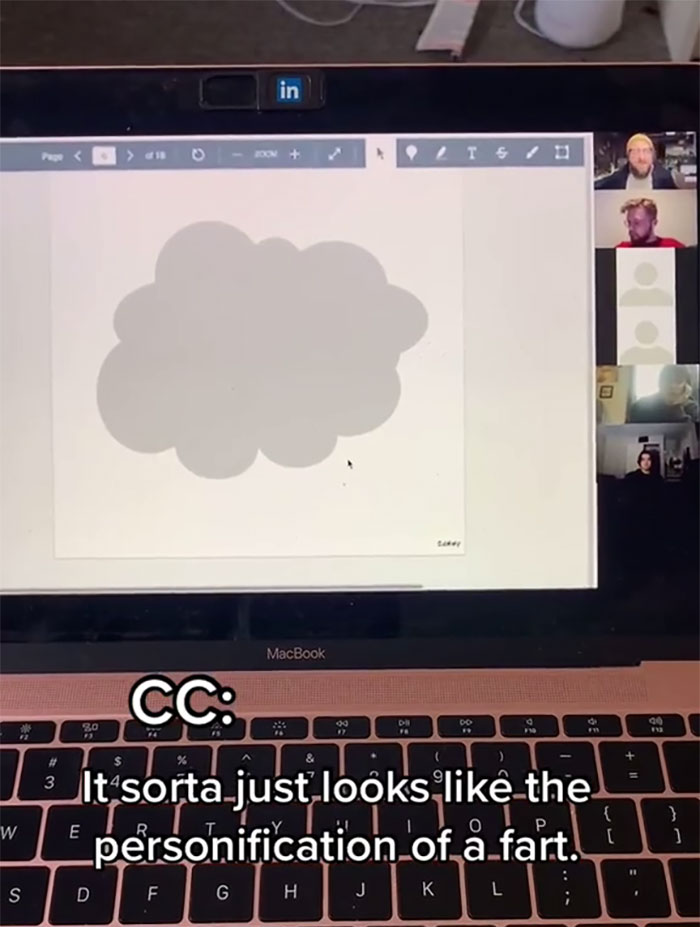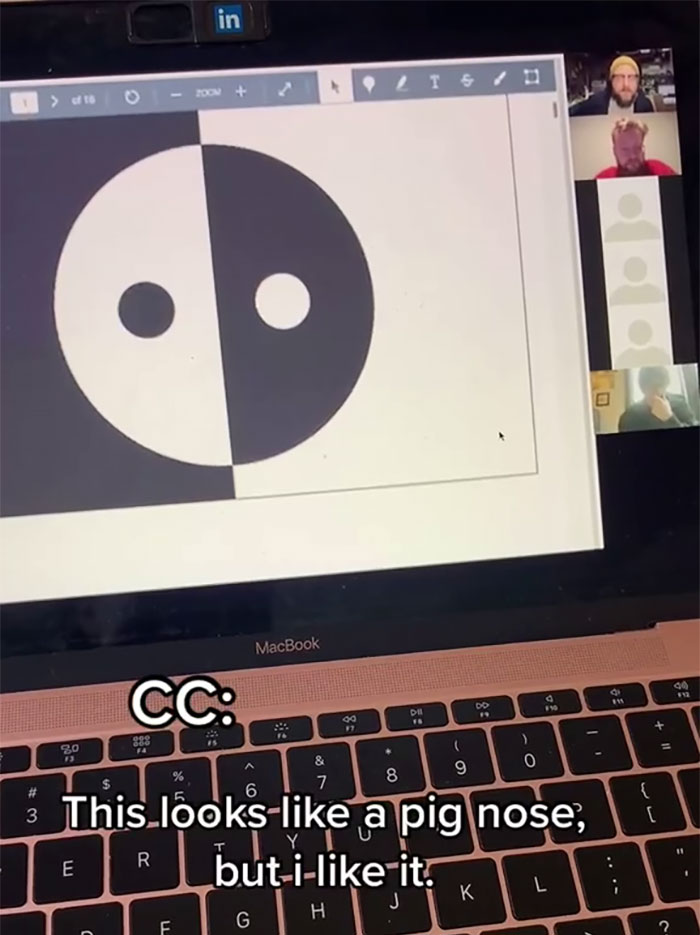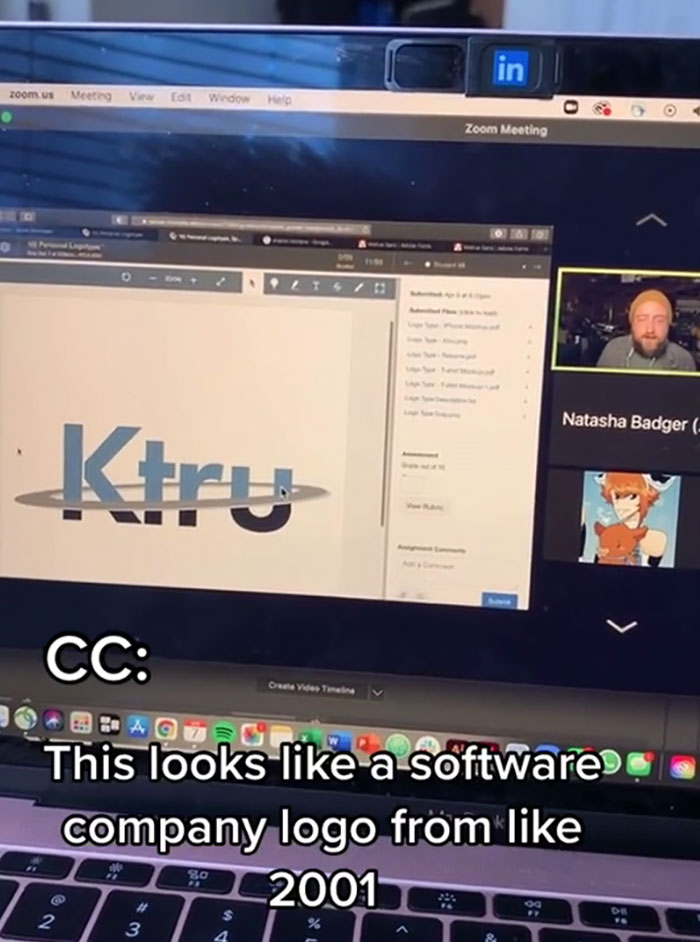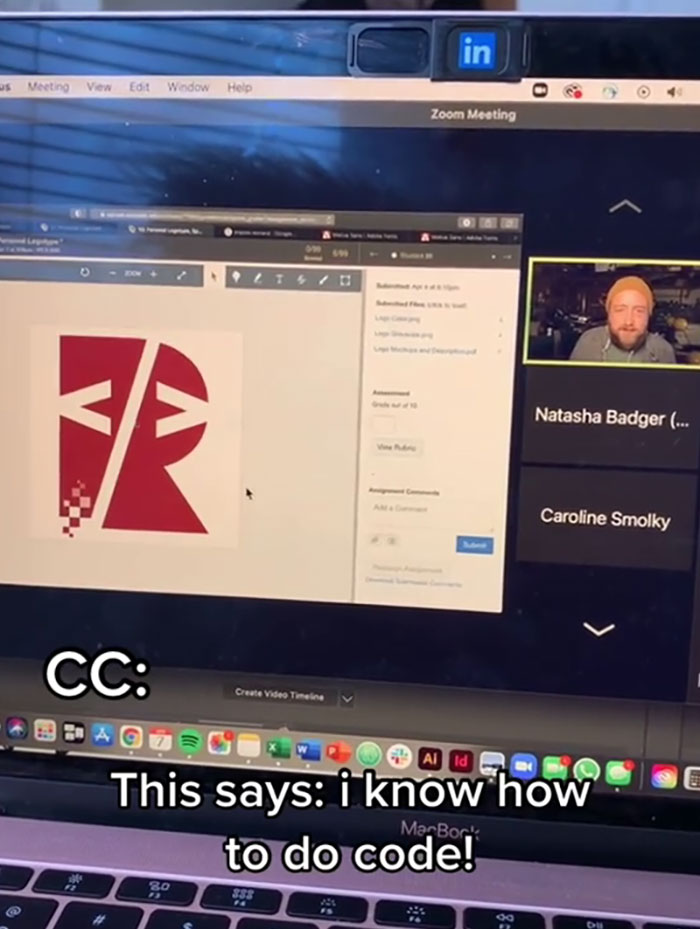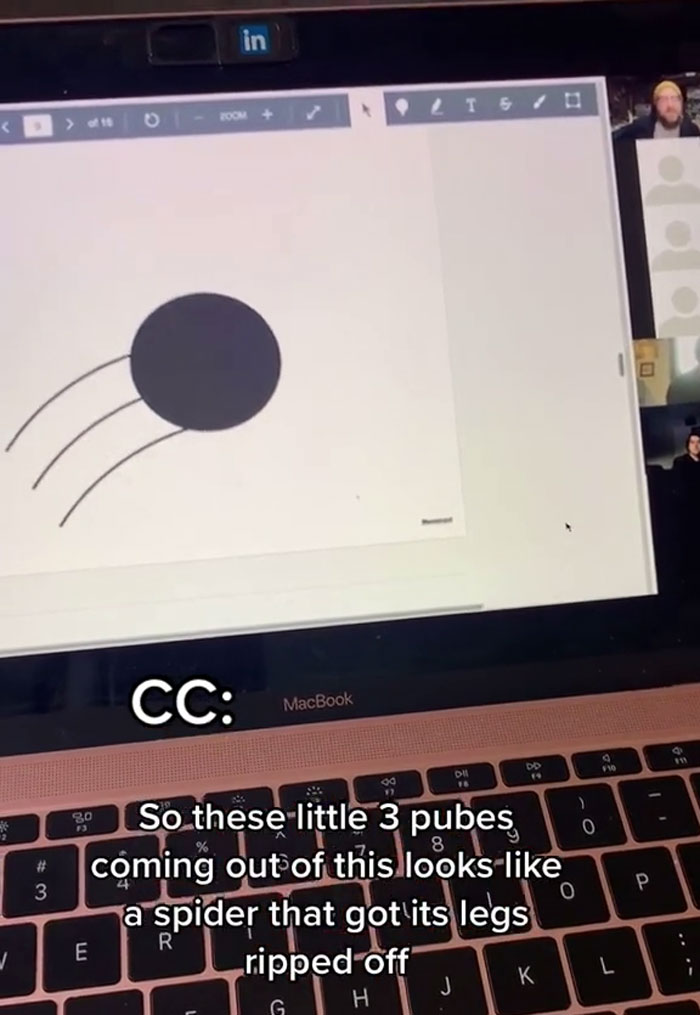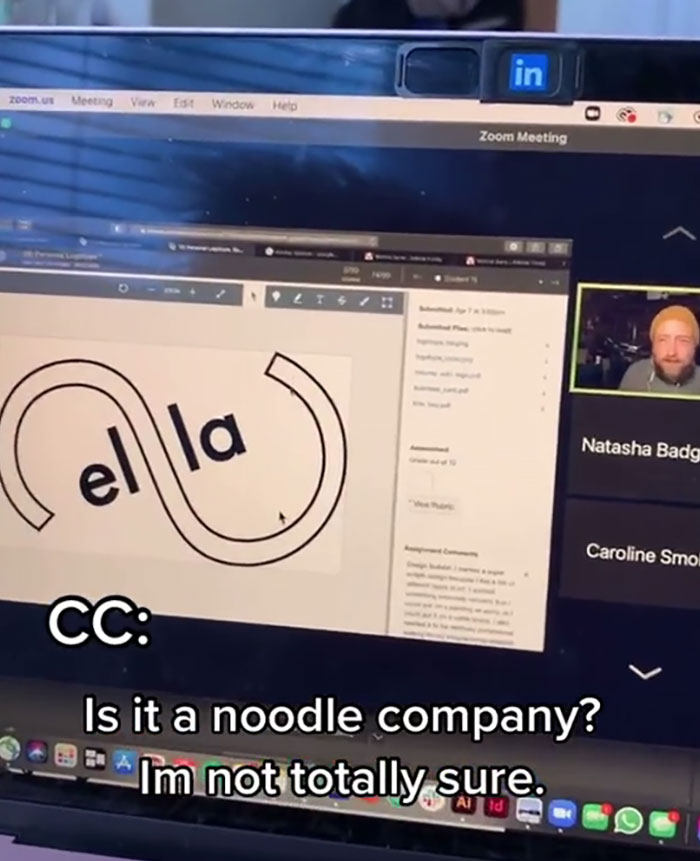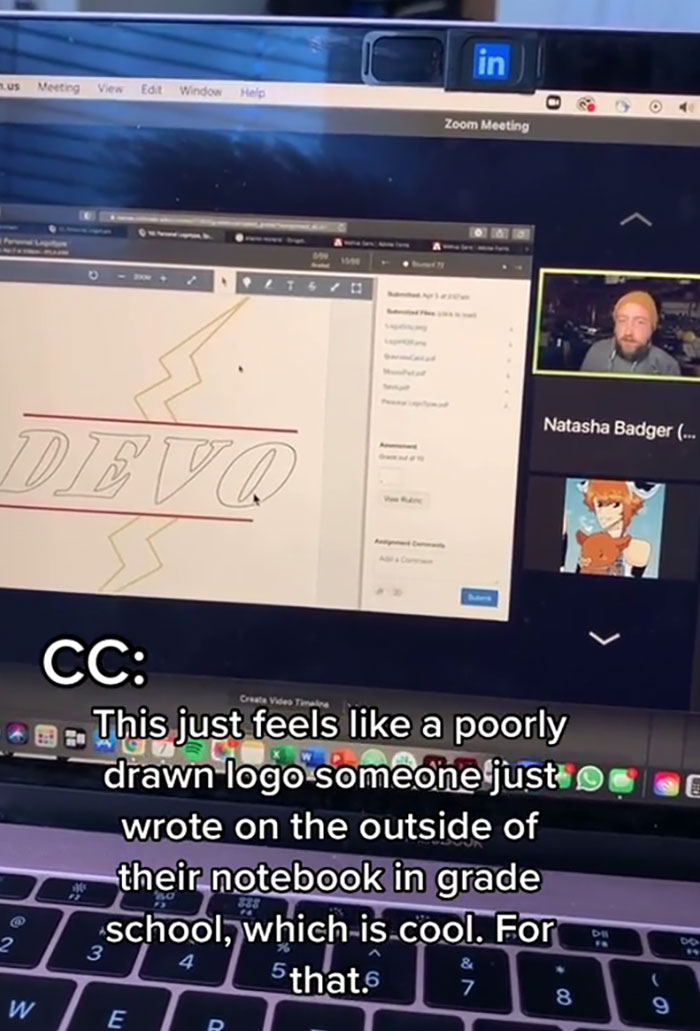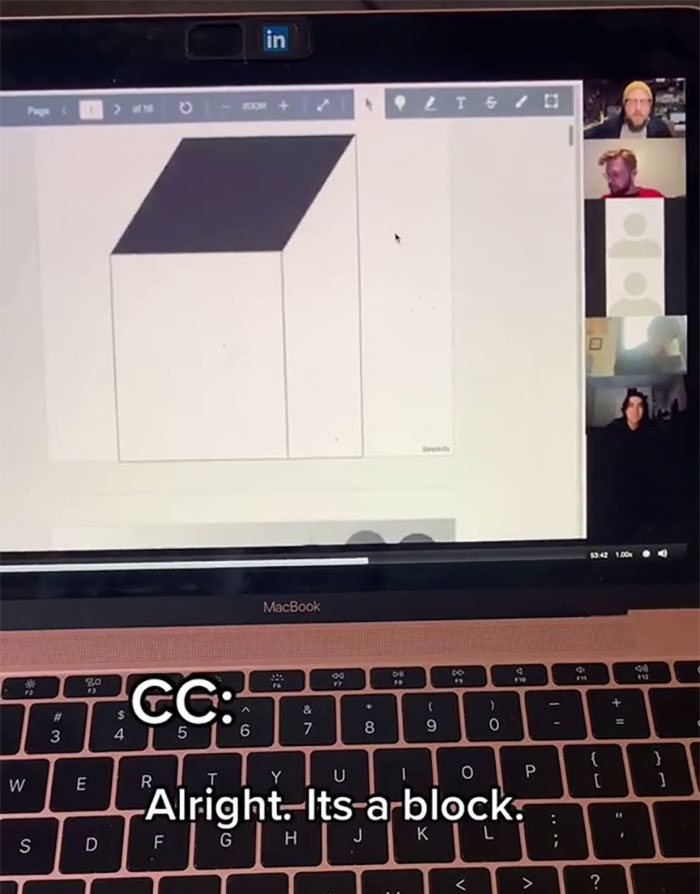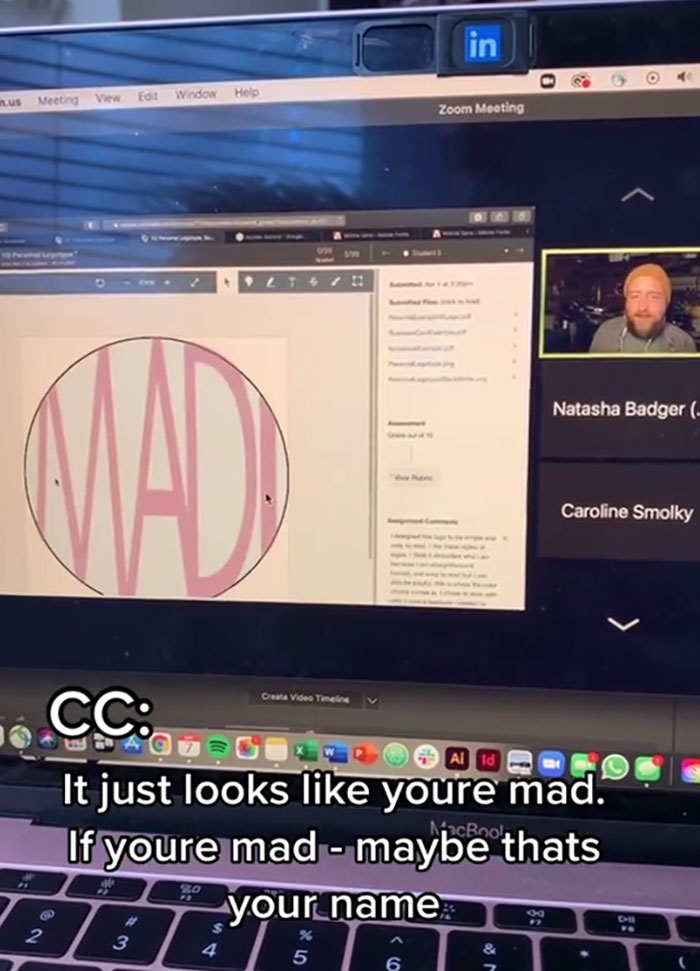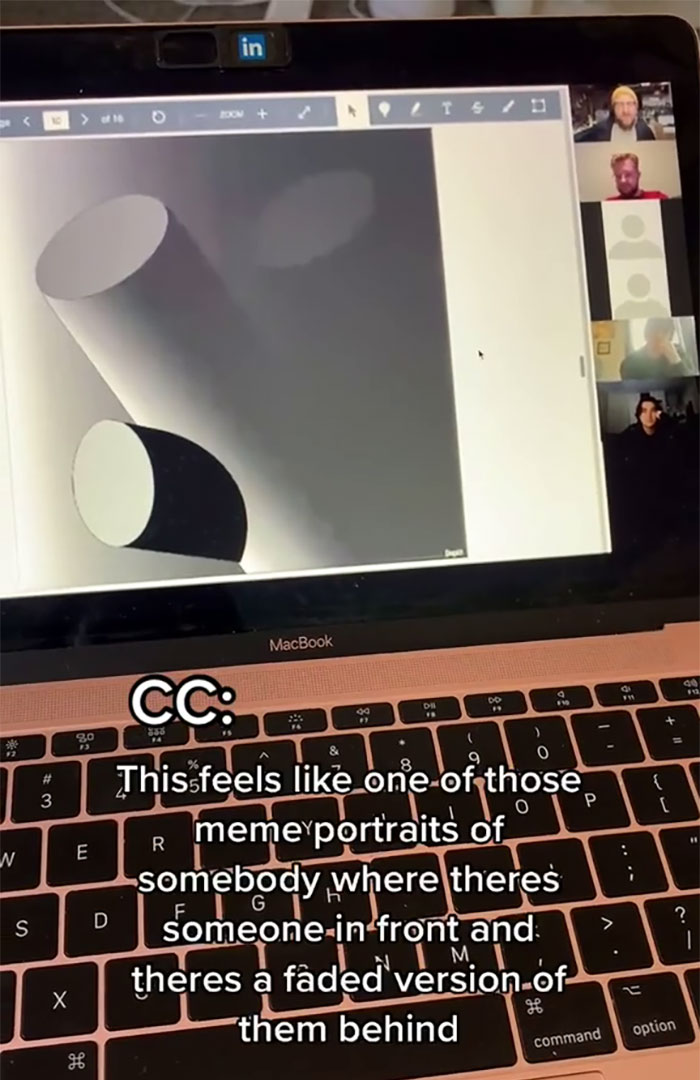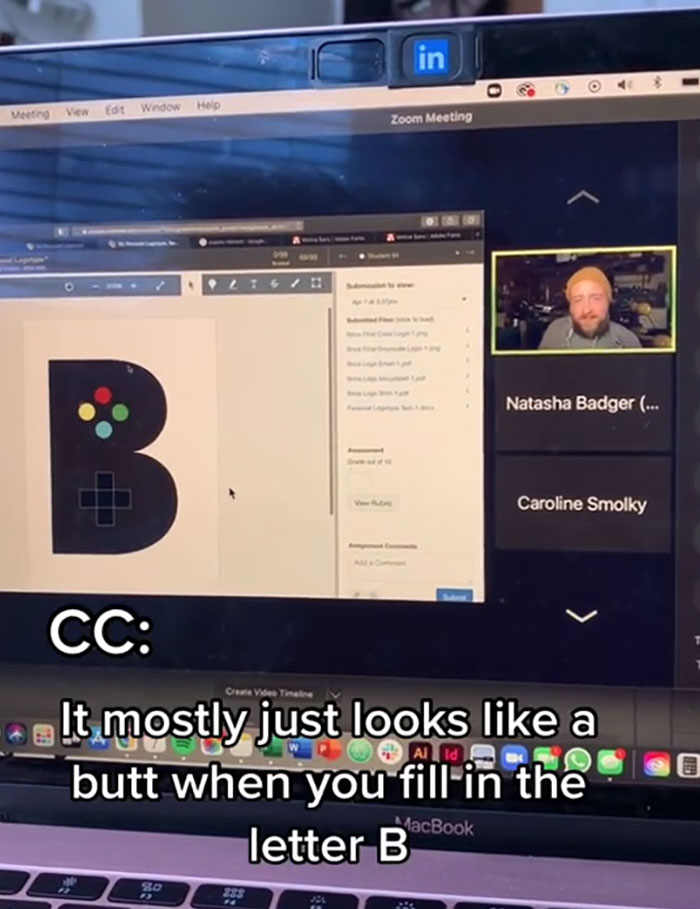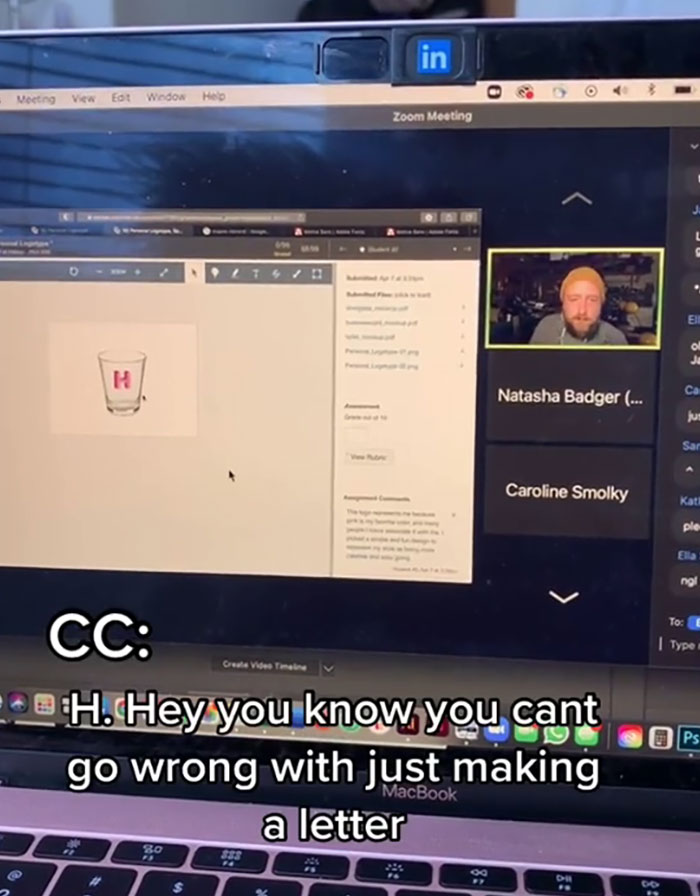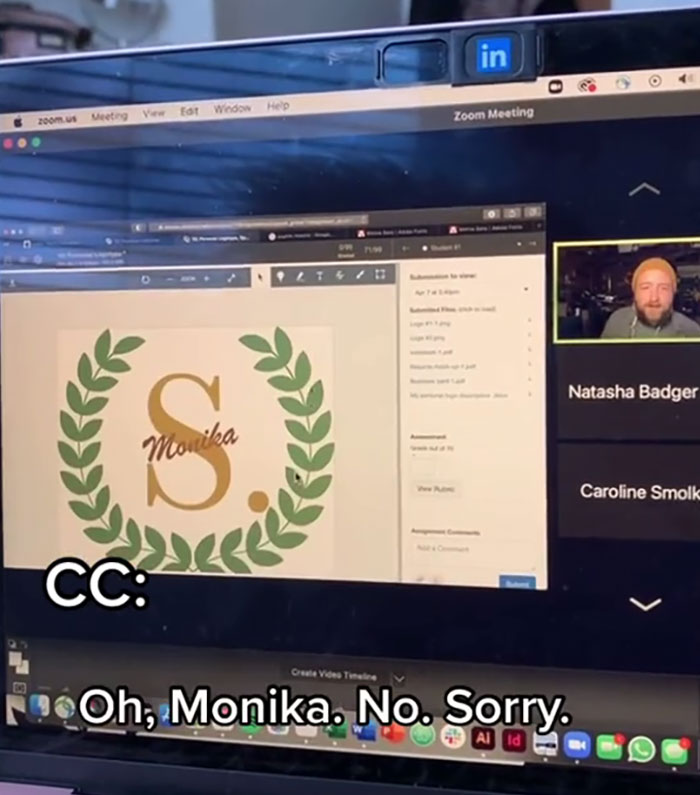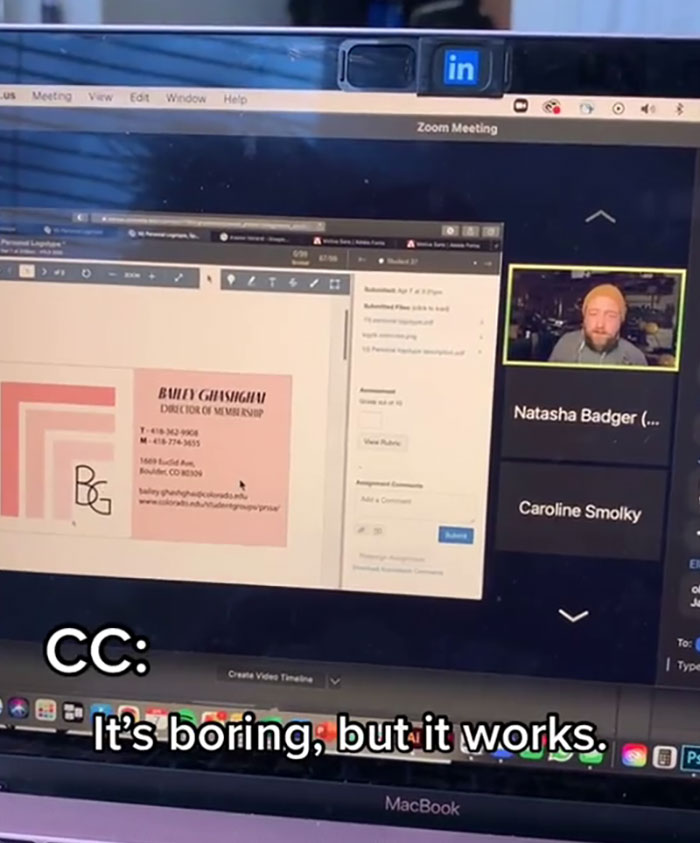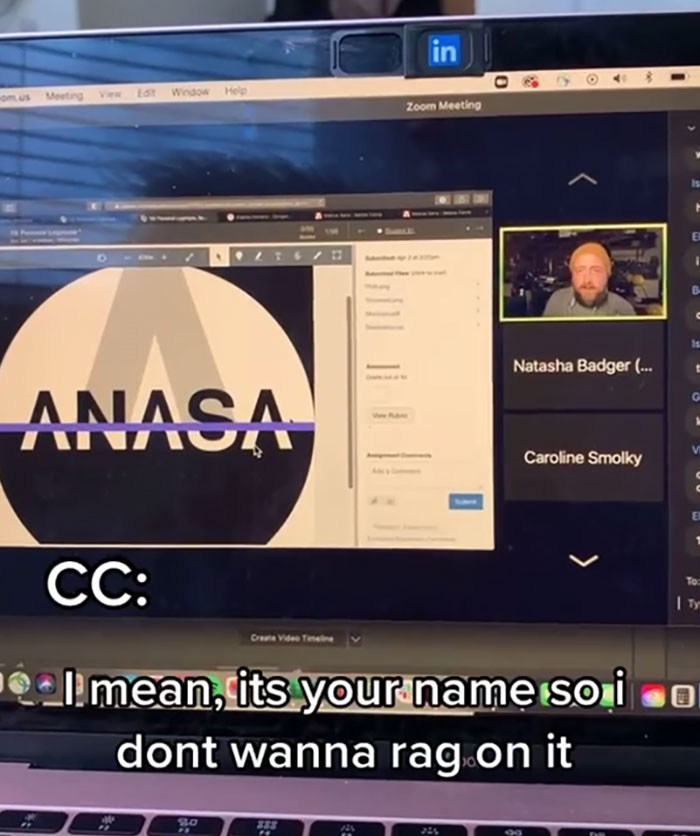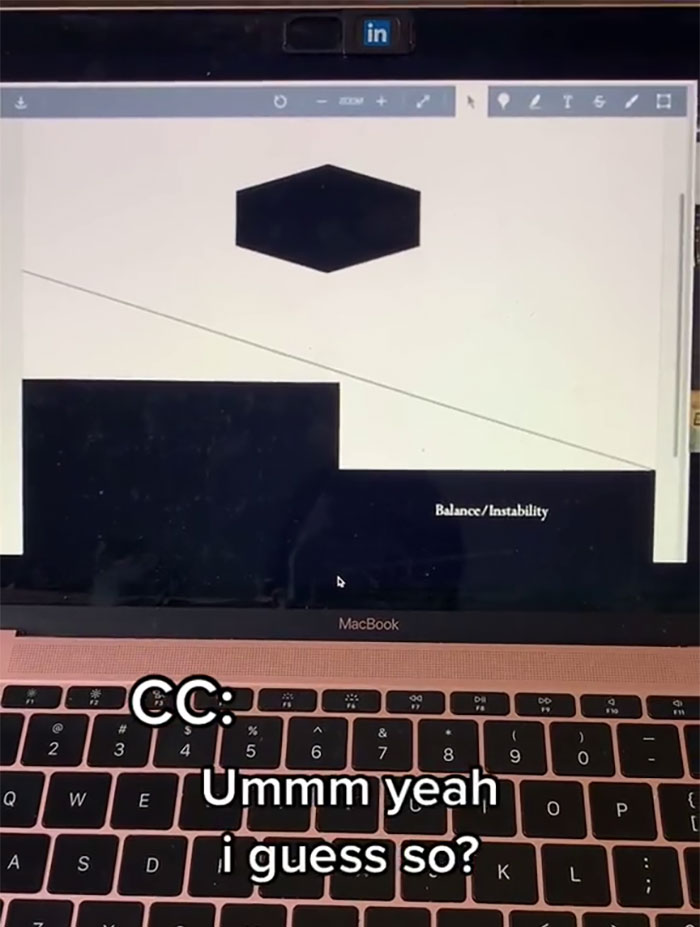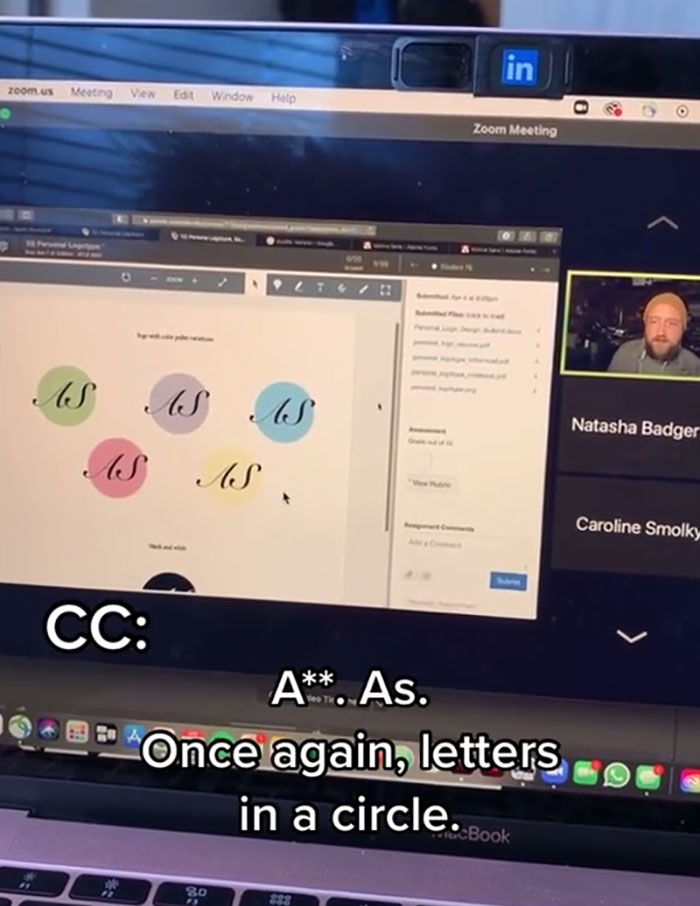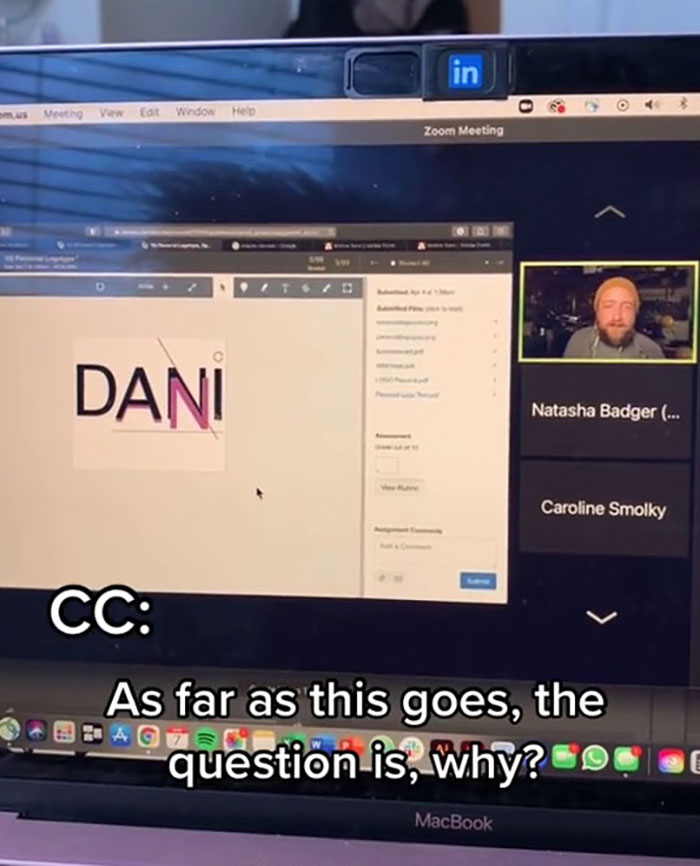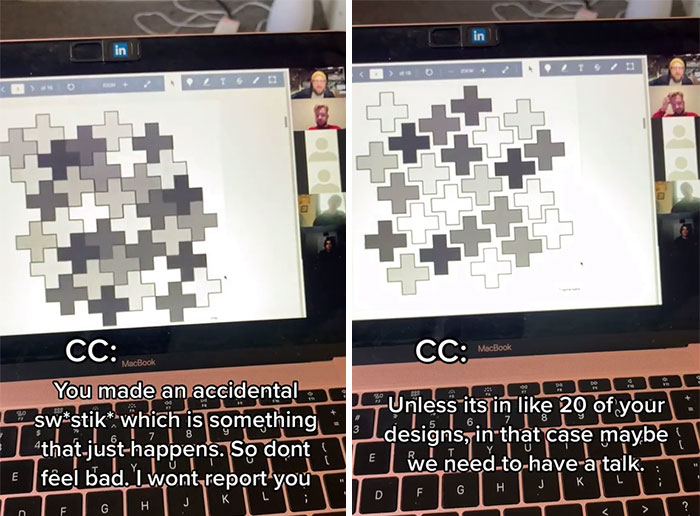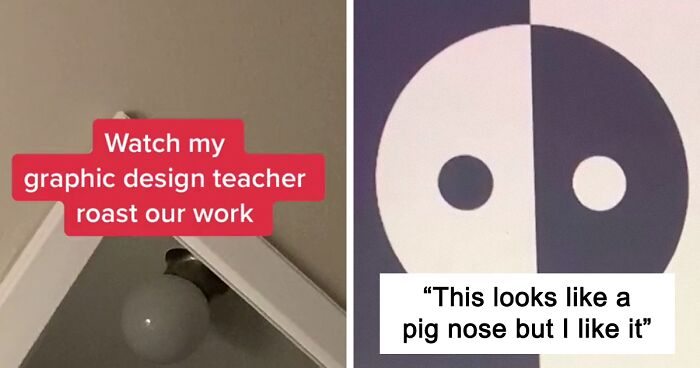
Graphic Designer Goes Viral For Hilariously Roasting His Students’ Work
You probably still remember your favorite teacher from high school or college. Because as the unspoken rule goes, it’s the teacher who makes the class, and almost never vice versa. Because who’d sit for hours at a time learning their fave subject if the person who teaches it couldn’t be bothered to make it entertaining? Well, I wouldn’t, nor would the TikToker Natasha Badger.
In fact, the college student Natasha, who takes graphic design classes, does so for only one reason—to see her teacher hilariously and mercilessly roast her fellow students' work. In a snack bite video which amassed 10.8 million views, the unquestionably cool teacher is seen making bold comments on logos made by the students.
And from the cringes you hear in the back, it seems like Natasha is not the only fan of his humorous teaching method.
The college student Natasha has shared a video of her graphic design class where students get “a rapid roast” from their teacher
The teacher may sound harsh on students, but students love the hilarity of his criticism, plus it helps to improve their work
The roast is not meant to embarrass any of the students, but to show the first association that comes to the teacher’s mind after seeing each logo
This post may include affiliate links.
Handling constructive criticism is one of the most essential skills you can learn in college. But the hard truth is that nobody really likes being told their work or effort is in some specific way lacking something. When someone criticizes your work, it may bruise your ego, and the genuine offer for help may be taken as an insult.
Another part of the hard truth about criticism is that the older you get and the more responsibilities you have, especially in your chosen career path, the more criticism you are going to get. This is part of the process of improvement, and handling it is key to taking the best out of it.
The great examples of constructive criticism almost always point towards practical solutions. Like: the sentences are too long. This implies a clear remedy: reduce the sentence size. Here are two different kinds of criticism: constructive, which is focused and analytical, and non-constructive, which is general and perfunctory. In that sense, the person who’s giving the criticism should be very aware of their word choices in order for the message to be received in a clear and productive manner.
Among the most common criticisms you’d hear from teachers throughout your years in college, is “This work is too descriptive; it should be more critical.” First Years get it a lot. It’s because they haven't mastered academic writing, and at this point, the teacher who’s giving you this point is probably right. Make sure you look at whys, not only whats.
Another common criticism you hear is “the work doesn’t answer the question,” and this one may be a teeny tiny bit frustrating. You sat there for the past few sleepless weeks, sweating yourself to cramps only to be told you interpreted the whole task wrong. It may be hard to hear, but hey, next time, you will definitely benefit from reading and re-reading the task, so you won’t need to sacrifice your entire body for writing.
On the other hand, if someone intends to make you feel bad with their criticism, then this is clearly not a piece of constructive criticism, and they are probably exorcising their own demons. This is not your fault, and you may wanna distance yourself from this type of “help.”
However, if the person means well and wants to help you, then the criticism is somewhat of a gift, which may not sound very pleasant at first but will surely give you room to thrive and improve beyond what you thought was possible.
@ta5hababy The only reason I go to class😳 #college #graphicdesign #roasted #coolteacher #zoom
♬ Spongebob - Dante9k
@ta5hababy Reply to @sunnylady330 HIGHLY requested part 2.... hope you enjoy #college #graphicdesign #coolteacher #roasted #boomroasted
♬ original sound - Natasha Badger
Yep. Although it proves bad graphic designs are no more boring than good ones.
Load More Replies...Will there ever be an interesting and/or clever post from Tik Tok? I am yet to see one.
All I think of it is as a place where people who are awful at dancing show the world that this is the case.
Load More Replies...Yep. Although it proves bad graphic designs are no more boring than good ones.
Load More Replies...Will there ever be an interesting and/or clever post from Tik Tok? I am yet to see one.
All I think of it is as a place where people who are awful at dancing show the world that this is the case.
Load More Replies...
 Dark Mode
Dark Mode 

 No fees, cancel anytime
No fees, cancel anytime 






